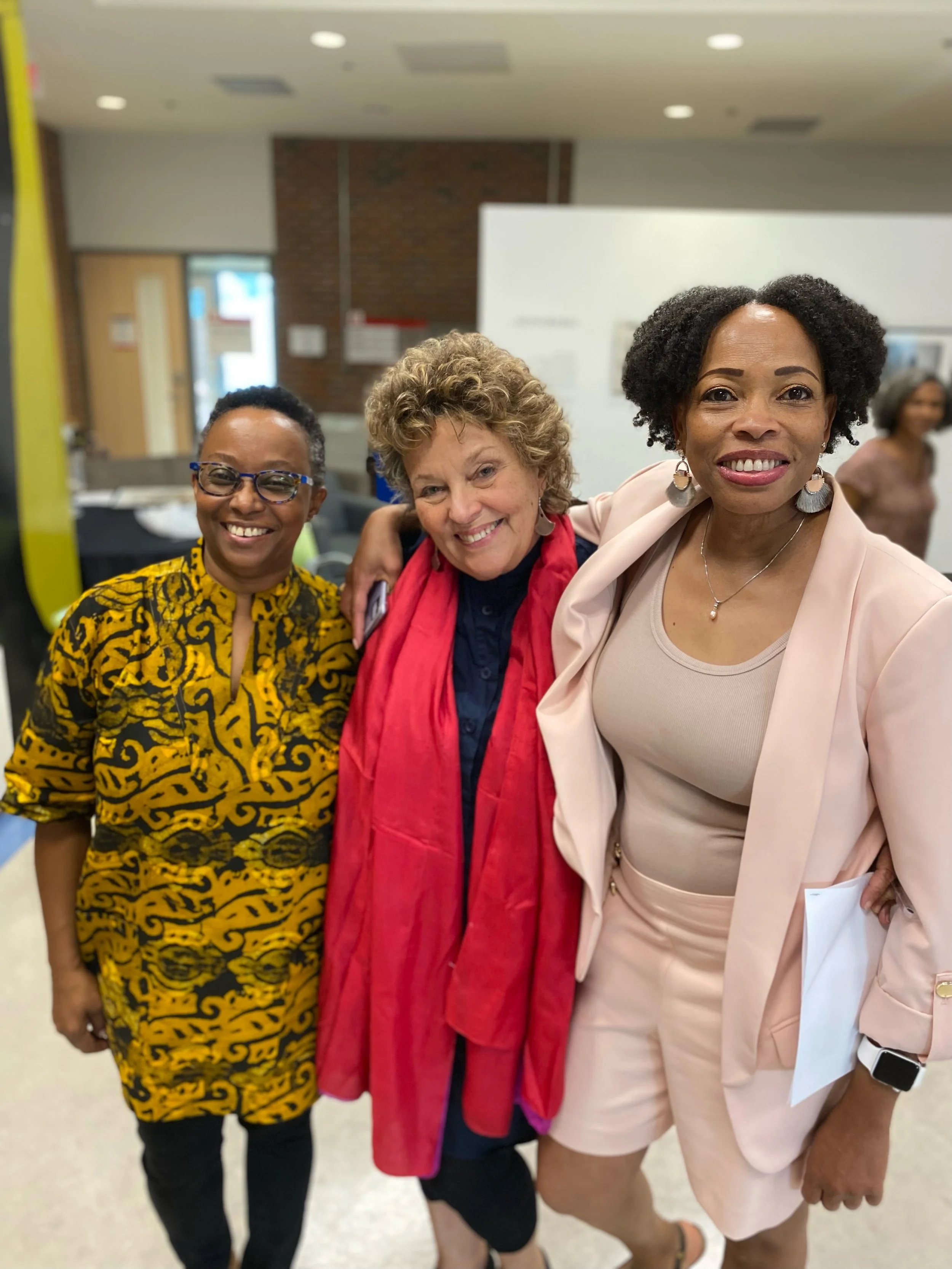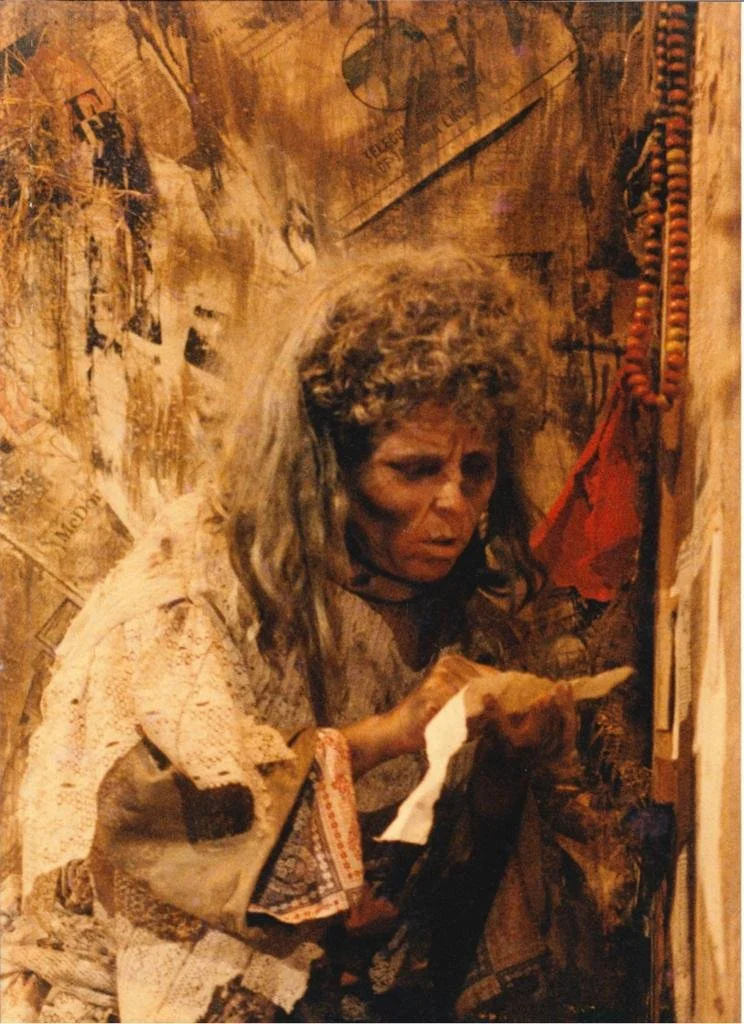Honor Ford-Smith made difference at York University
November 1, 2022
When Dr. Honor Ford-Smith joined York University’s Faculty of Environmental Studies (FES) in 2006, there was no Black teaching Staff.
Sixteen years later as she retires, there are five among the 52 full-time faculty members.
“I always said when there is a solid number of Black folks here, I would retire,” said Ford-Smith who held fellowships at the Radcliffe Institute for Advanced Study at Harvard University and the Rockefeller Foundation Bellagio Centre and was a Copeland Fellow at Amherst College. “That has happened. That change came through organizing both inside and outside the university. Many Black students and faculty fought together over years.
“A key factor was support in the university from folks like Professors Carl James and Andrea Davis and, of course, the movement of the city and students who worked hard to bring the concerns of Black students as well as those of other students of colour and working class, queer and disabled students, to the attention of the university. This struggle is not over and there is a lot more to do. This is just the beginning and I leave it now to the new generation to fight to make things the way we want them to be.”
Two of the new Black faculty were hired this year.
“Now is when a number of other questions are going to be opened up just because they are there now, they are in the room and they are in the conversation,” said Ford-Smith whose projects are rooted in the global Caribbean, the Black Diaspora and/or in the wider Global South. “It’s not just about a numbers game. It is also about increasing visibility and thinking substantively about what Black presence might mean for bigger questions.”
Postcolonial scholar Dr. Ilan Kapoor acknowledged the scholar and theatre artist for the huge role she played in increasing diversity in the FES which merged with the Geography program in the Faculty of Liberal Arts & Professional Studies in 2020 to form the Faculty of Environmental & Urban Change.
“Almost singlehandedly, the fact that we have had at long last being able to hire amazing new Black faculty is because of Honor,” the Critical Development Studies professor pointed out at her retirement reception. “Her conviction and uncompromising stand on this along with her relentlessness have been instrumental in building a broader culture of anti-racism in this faculty and on this campus.”
Kapoor also lauded Ford-Smith’s commitment and dedication to her students.
“Particularly the community arts and theatre-focused ones who you spent hours with and I know that because I saw you in your office always with the door open,” he added. “You taught them, you encouraged them, you mentored them and, of course, you have learnt from them. You are retiring, but you won’t retire from being great.”
Dr. Andrea Davis met Ford-Smith while they were graduate students at York University and the University of Toronto respectively.
They grew up on Hope Rd. in Jamaica without knowing one another.
“Although we grew up in different social classes, Honor has always been a fierce defender of Black people, Black Jamaicans and poor people,” said the Academic Convenor of the 2023 Congress of the Humanities & Social Sciences to be hosted by York University. “The work she has done in FES in fighting for Black faculty and her mentorship of many Black students is work that we love her for.”
Dr. Honor Ford-Smith with Jamaican-born lecturers Dr. Michele Johnson (l) and Dr. Andrea Davis (Photo contributed)
Tameka Samuels-Jones, the Associate Director of the Centre for Research on Latin American & Caribbean Studies (CERLAC) at York University, paid tribute to Ford-Smith who was in the role for two years.
“There were two years of new beginnings, partnerships and edification and it is an understatement to say we are sad to see her go,” she said. “In terms of her work with CERLAC, Honor transformed our Batista Lecture by organizing themes that emphasized the intersection of race, decolonization and repatriation in the Caribbean, issues that are deeply sensitive and are often ignored or given a cursory glance by other mainstream scholars. In fact, every meeting with Honor was a learning experience.”
Samuels-Jones said Ford-Smith’s devotion to Caribbean thought on freedom and emancipation was not just relegated to her scholarly work.
“She is a true mentor,” added the Faculty of Liberal Arts & Professional Studies School of Administrative Studies Associate Professor. “She established the Black, Indigenous & Caribbean Students Initiative from which the student-led Iyaric publication was born. This is but one of the many ways in which she is leading a new generation of scholars into the richness of Caribbean political thought.”
Born in Montreal, Ford-Smith spent nearly four decades in Jamaica immersed in community theatre and popular education before returning to Canada.
She said she was lucky to be born into a time of optimism.
“I was formed by the struggles for radical change in Jamaica in the 1970s,” Ford-Smith, who was recently recognized by the Canadian Association of Theatre Researchers, noted. “It was not just some great glory hallelujah moment of change, but rather the culmination of many small efforts of organizing to end colonial capitalism in all its manifestations. A lot of the time, it felt like nothing was happening. Then right after the uprising to protest the deportation of the great Walter Rodney, the barriers of race and class began to come down. Voices long suppressed called for an end to imperial control of land, access to land for small farmers, the recognition of women’s labour and the repatriation of wealth accumulated from extraction.”
She said she turned to the arts during that period because it was a way of making visible experiences, needs and desires that were looking for ways to make themselves known.
Mentored by a generation of Caribbean anti-colonial poets and writers was a big bonus for Ford-Smith who wrote ‘My Mother’s Last Dance’ which is a collection of poems and edited ‘3 Jamaican Plays: A Postcolonial Anthology (1977-87)’.
“I was so lucky and I want to make it clear that I stand on their shoulders because all of them have died,” she said.
From Dennis Scott, Ford-Smith learnt the importance of African-Caribbean ceremony and ritual as a place of knowledge making.
“I learnt what he might have called an aesthetic of scarcity where minimalism acquired a political edge and became a decolonial method of art production,” she said. “The idea that less is more spoke in performance to what we were creating out of a scarcity of material things and a wealth of sound movement and intelligence that included both feeling and spirit. I also learnt from Scott that the best teacher is the one that does not get in the way of what the student is trying to do.”
Ford-Smith absorbed the art of autobiography, she said, from Barbadian novelist George Lamming who passed away last January.
“His work offered a compelling critique of the plantation through a form of fictionalized autobiography that allows the reader to see how power shapes us through the construct we call race and, indeed, how power marks the land on which we stand,” she said “…Unlike my professors, he was not institutionally based, but showed that reality is not what it seems. His writing revealed the workings of power behind every day and the familiar, the long hand and the ongoing project of imperialism.”
Late poet and scholar Kamau Brathwaite also played a pivotal role in shaping Ford-Smith who co-founded the Sistren Collective Theatre that, under her artistic direction, produced several award-winning plays, including ‘Bellywoman’, ‘Domesticks’ and ‘Bangarang’.
“I was so lucky to grow up in a time when people like Brathwaite were around who were making the polyvocality of the Caribbean available and whose vision of the environment and the social importance of the markings of the environment came to shape me,” she said. “I am saying this to say I could not have done anything alone. Just as the Jamaican men and women who fed me, clothe and watered me when I was a kid and who made me who I am without asking me for one thing in return, it is all of these people on whose shoulders I stand.”
Dr. Honor Ford-Smith (l) with late University of the West Indies Alumni Association Toronto chapter co-founder Maud Fuller (Photo by Ron Fanfair)
With environmental change and urbanization representing two of the most critical challenges facing people and the planet, Ford-Smith embraces the need for public and green spaces and the preservation of natural assets.
“We are one of the zones of most urban rapid growth in the world,” the Caribbean Association for Feminist Research & Action founder said. “To what extent are the majority of the people in the region involved with the forms of development and is this the kind of development they would like to see’? In Kingston, there are major problems around public space, congestion of traffic and public transportation which have real consequences for people’s future.
“The other concern is Jamaica imports 80 per cent of food. We can’t feed ourselves, so we will catch pneumonia if North America sneezes. If you push people off the land for mining, then what are we going to cultivate.”
To address these issues, Ford-Smith is willing to collaborate with like-minded people who share her concerns.
“They could be people who are at risk of losing their land or those who are suffering from particular forms of pollution as a result of extraction,” she said. “In some cases in Jamaica, aluminum production and bauxite mining cause massive health issues. I would like to see certainly a more robust debate around the question and discussion about the kind of future we would envision for ourselves and I think there is an important role for Diaspora in that as well.”
Flora Gomez was Ford-Smith last supervisee.
“Geniuses are not always easy to understand,” the recent Master’s graduate said. “It took me months to fully get how brilliant she is. Once I did, I kept on walking with her at my side. She has the capacity to see who you are, where you are going and then the audacity to push you all the way there even if you haven’t figured that out yet.”
Associate Professor Stefan Kipfer was a colleague of Ford-Smith for almost the entirety of her time at York University.
“Honor taught us and warned us against bureaucratizing the struggle,” he said. “I am saying this because it was probably one of the recurring things that came up in meetings we participated in along with many of you. She always warned us to make sure that the concerns and the issues that we may have around equality and anti-oppression would not disappear into an article somewhere in the institution.”
Interdisciplinary visual artist Charmaine Lurch presented a charcoal on parchment drawing, ‘Re-reading’, to her former teacher.
“This work is a revelation that comes from Honor listening to me,” she said. “I learnt how to understand it as a refusal, as liberation, as power and as joy and strength. “For me, Honor is this book in this work. She gives us prompts, she gives us words to take away and now things to hold on to and remember.”
To mark Ford-Smith’s retirement, Andil Gosine curated a visual art exhibition, ‘Honorobel’, featuring her former students Anique Jordan, Mosa McNeilly, Nastassia Pratt, Shuxia Tai, Camille Turner and Lurch.
Dr. Honor Ford-Smith as the character “Katie” in the dramatic comedy playwright, Fallen Angel and the Devil Concubine (Photo contributed)
“In Caribbean Studies, Honor really is a giant respected for her intellectual contributions and artistry,” said the artist and professor who migrated from Trinidad & Tobago with his family at age 14. “One of the things I wanted to make sure didn’t go unnoticed is her work as a mentor. She has mentored some wonderful artists in her time at FES.”









